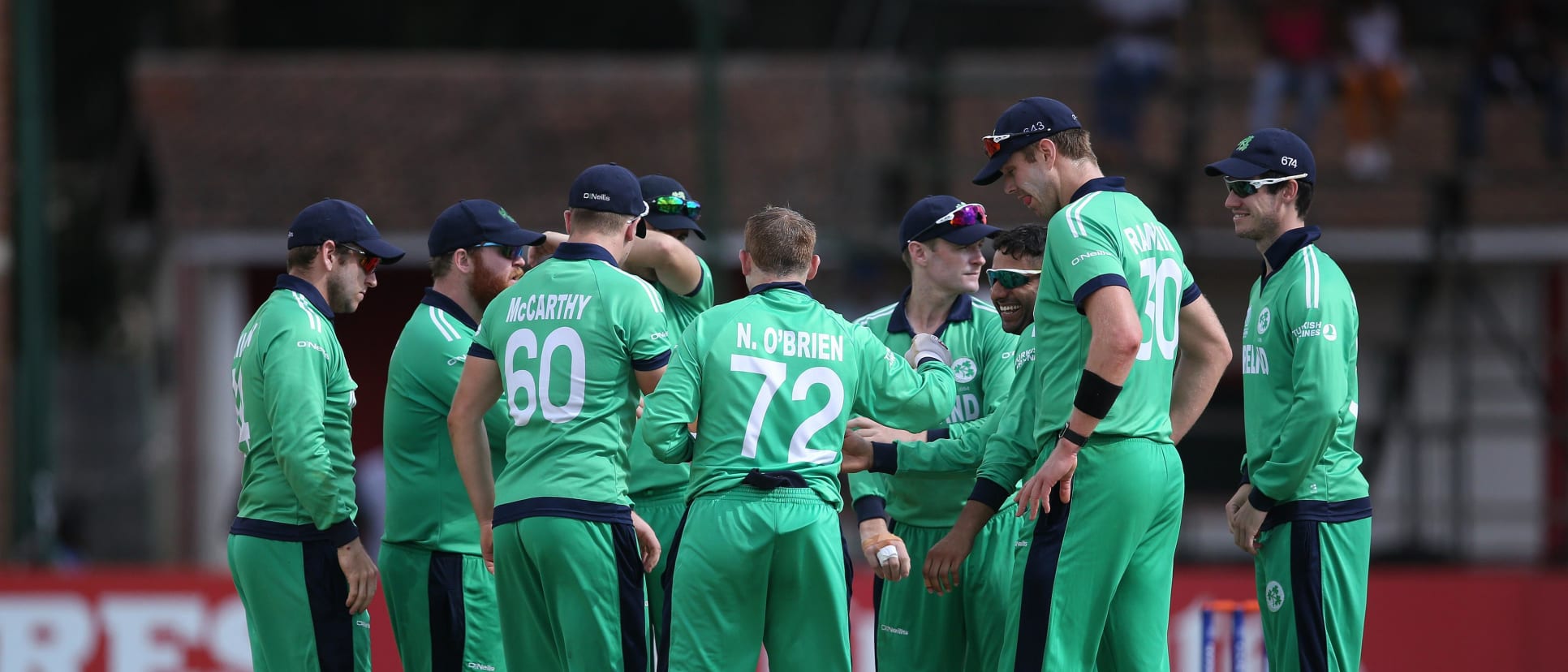At a glance: Ireland’s rich cricket history

With Ireland embarking on their journey in the Test arena, one of cricket's most incredible stories has reached its highest point to date.
A country with a rich history of cricket, dating as far back as the 1700s, will now compete against the best sides in the world in the longest format, starting with the fixture against Pakistan on Friday 11 May.
As Ireland, who have already beaten four Full Member nations as an Associate team in different editions of the ICC Cricket World Cup – Pakistan, England, Zimbabwe and the Windies – prepare to walk out in whites in the international arena, here's a brief look of how cricket thrived and prospered in the country despite several obstacles.
The 18th-century beginnings
The earliest records of cricket being played in Ireland was in the late 1770s, and by the end of the century, the game had spread widely in the country. Several Irish clubs were formed and the first ‘national’ team took the field in 1855 in a game against a team from England, in Dublin.
The first touring party came to Ireland in 1858, when Marylebone Cricket Club played them, and soon after, the popularity spread even further.
Thriving despite early setbacks
The game was banned for more than 80 years in the country because of political reasons. The largest sports administration in the country, the Gaelic Athletic Association, was formed in 1884, and banned athletes competing in 'foreign sports' such as cricket.
The idea was to popularise local Irish sports. The extent of the ban was such that even watching the game of cricket invited trouble. It wasn't until 1971 that the ban was lifted.
Despite these setbacks and the two World Wars, the game survived, and Ireland sent teams to Canada and the United States of America in the late 1880s, and more than one country even visited Ireland. Ireland even beat a South African team in 1904 and the Windies in 1928, with their maiden first-class match in 1902, against London County – captained by WG Grace, no less – ending in a 238-run loss.
Coming into prominence
Ireland were granted Associate status by the International Cricket Council in 1993 and they participated in their first ICC Trophy in 1994. They finished seventh in the 20-team tournament on that occasion, but qualified for the semi-final in the 1997 edition.
Meanwhile, the Irish Cricket Union (ICU), which had been in the making since the late 1800s, was officially founded in 1923 and has since instrumental in Ireland playing matches chiefly against teams from England and Scotland ever since. Ireland also played in the Gillette Cup, then a 50-over competition in England, for the first time in 1980.
Check out the squad for @Irelandcricket's first men's Test against Pakistan next week! ☘️
— ICC (@ICC) May 4, 2018
More ➡️ https://t.co/jt80XXHDYh pic.twitter.com/kBBcidN66L
More recently, in 2013, the ICU launched the Inter-Provincial Series as part of their attempts to gain Test status. The tournament was awarded first-class status by the ICC in October 2016, which helped Ireland become a Full Member nation. Simultaneously, the four Irish provinces organise their own calendars, making what is a thriving domestic circuit.
World Cup campaigns
Ireland failed to qualify for the 1996, 1999 and 2003 ICC Cricket World Cups, and played their first World Cup in the Caribbean in 2007. They created a splash straightaway, beating two Full Members – Pakistan in the league stage and Zimbabwe in the Super Sixes – and finished as the best Associate team in the tournament. It was clear that Irish cricket had taken giant strides.
The glory run continued into the next edition, co-hosted by India, Sri Lanka and Bangladesh, when Ireland chased down 328 to beat England in Bangalore, with Kevin O'Brien scoring the fastest century in World Cup history – off just 50 balls.
In the following edition, co-hosted by Australia and New Zealand, Ireland defeated the Windies and Zimbabwe in the league stage. However, they could not qualify for the 2019 event after failing to finish as one of the top two teams in the ICC Cricket World Cup Qualifier 2018.
The road ahead
After over 250 years of cricket, Ireland were granted Full Member status by the ICC in 2017, alongside Afghanistan, and the country will host Pakistan in Dublin for their historic maiden Test.
William Porterfield, the 33-year-old Ireland captain, who has been playing for the country since 2006, will become the first man to lead the team in a Test match.
Ireland will also be a part of the ICC’s new 13-team one-day international league, set to begin in 2020, which gives them regular fixtures against the top ODI teams in the world.
It’s a new dawn for Irish cricket, one that they have shown they are ready to make the most of.